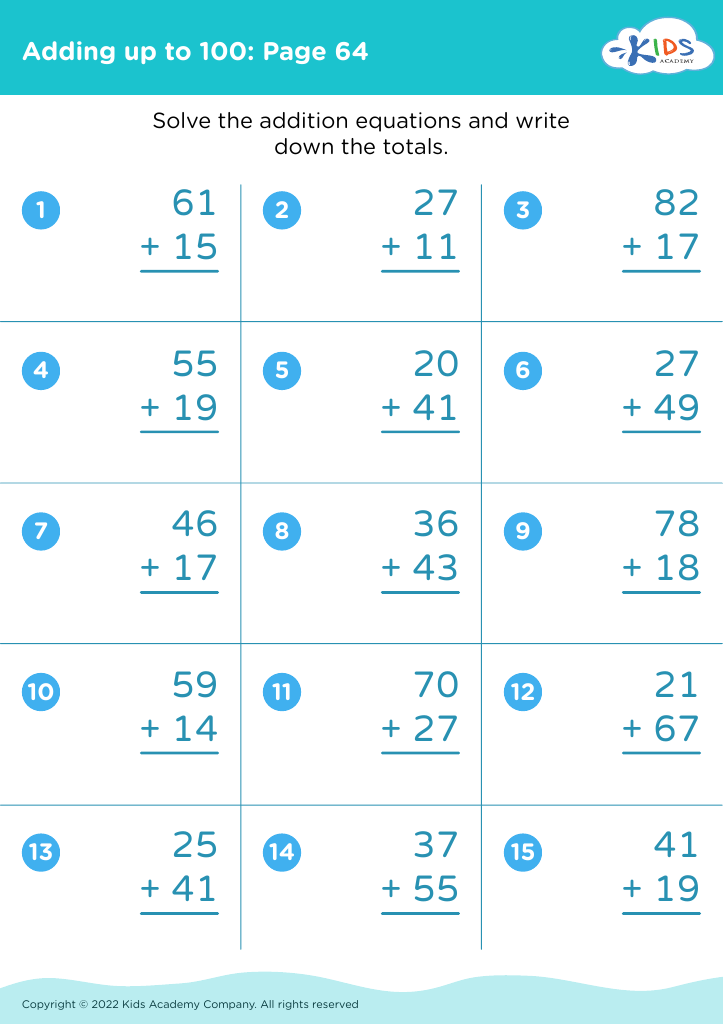Fraction Addition Adding up to 100 Worksheets for 8-Year-Olds
3 filtered results
-
From - To
Enhance your 8-year-old's math skills with our engaging Fraction Addition Adding up to 100 Worksheets. These carefully crafted worksheets are designed to make learning fractions fun and easy. Each sheet provides a variety of problems that challenge students to practice adding fractions with different denominators, promoting critical thinking and problem-solving skills. Our worksheets align with curriculum standards, ensuring your child receives quality educational material. Perfect for classroom or at-home learning, these printable resources help solidify foundation math concepts in an enjoyable and interactive way. Explore our collection and watch your child's confidence in math soar!
Understanding fraction addition, including sums up to 100, is crucial for 8-year-olds because it builds strong foundations in mathematics and real-world problem-solving skills. At this age, cognitive development allows children to grasp more complex numerical concepts, and mastering fraction addition helps in honing their analytical and critical thinking abilities.
First, fractions are everywhere in daily life, from cooking and measuring ingredients to dividing tasks or resources fairly. When children learn to add fractions accurately, they develop practical skills to navigate these everyday situations confidently.
Second, the academic journey becomes smoother with a robust understanding of fractions. Different subjects, especially science and advanced mathematics, incorporate fractional concepts. Proficiency in adding fractions ensures children are better prepared for topics they'll encounter in higher grades, such as algebra and geometry.
Additionally, working with fractional sums encourages precision and attention to detail. It requires following specific steps, fostering discipline and patience.
Finally, mastering fractional addition supports the development of a positive mathematical mindset. Success in tackling such challenges can boost a child's confidence, making them more likely to engage with and enjoy learning mathematics.
In conclusion, fraction addition up to 100 for 8-year-olds is fundamental not only for academic success but also for practical life skills. Teacher and parent encouragement in this area can lead to well-rounded and capable individuals.








%20(1).jpg)









